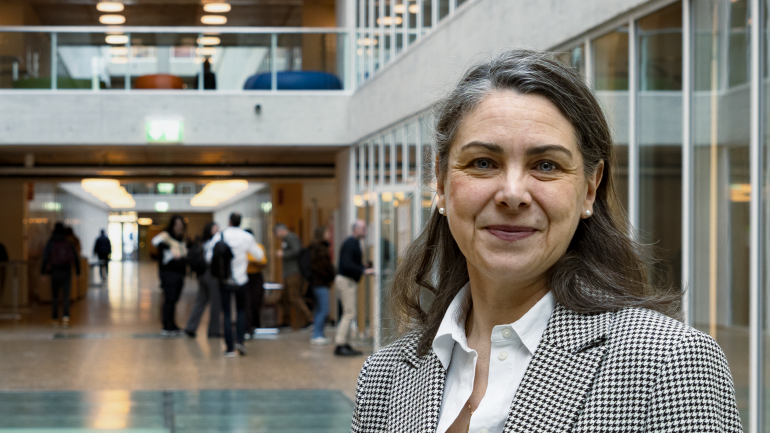
Stephanie Steinmetz is an Associate Professor of Sociology at the University of Lausanne (UNIL) and the Scientific coordinator of the Swiss Generations and Gender Programme (GGP). KA / Centre LIVES
Increasing family diversity, stagnating gender equality and declining fertility... Switzerland is preparing to join the European Generations and Gender Programme to study all these issues. Coordinated by sociologist Stephanie Steinmetz of the University of Lausanne, this research will provide insight into actual changes in family trajectories and attitudes towards family, work and care responsibilities. Interview.
What is the main objective of this research project?
We want to provide a "reality check" to assess whether Switzerland, compared to other European countries, is well equipped to face crucial socio-demographic challenges related to three key issues: increasing family diversity, stagnating gender equality, and declining fertility.
Family diversity... What are you trying to understand?
The traditional father-mother-child model of Swiss families has evolved considerably. There are now different types of families - blended families, same-sex families, stepfamilies, single parent families. The configurations are diverse. But how does Switzerland compare to other countries in terms of accepting this diversity? And, above all, does our legal and policy framework support these different family forms?
The second focus concerns the stagnating gender equalities. What's the issue?
It's what we call the "stalled gender revolution". Women now outperform men in higher education and participate more in paid work Yet, we don't see men contributing more to unpaid work - childcare, household tasks, and care giving tasks. Does Switzerland, with its limited affordable childcare system, the high share of part-time work, and policies that still favor the traditional family model, really enable couples to share unpaid work equally?
And the third challenge is fertility?
Yes – fertility rates are declining. We've been observing this for decades, but it's striking that even the Nordic countries – long seen as models for strong work-family support – are now experiencing a decline in fertility. We thought that good institutional support would help maintain a higher fertility rate. But that's no longer the case. So, we need to better understand what else is happening across countries and what other factors are at play – economic uncertainty, changing life aspirations, or persistent gender inequalities, for example.
Why is this research important for Switzerland?
Families are diversifying, gender roles are shifting, and fertility patterns are changing - yet our policies haven't kept pace. Without solid comparative data, decisions on how such demographic challenges can be addressed are made blindly. In this project we will show where Switzerland stands, what works, and what doesn’t, offering hopefully some evidence to inform and guide policy makers.
What makes this study unique?
We bring the Generations and Gender Programme to Switzerland - a large, internationally harmonized survey conducted already in several European countries and even beyond. This means we can directly compare Switzerland with other countries facing similar demographic challenges. And because it’s a longitudinal study, we’ll follow the same people over time to see how their attitudes and behaviors around family, work, and care evolve.
What challenges have you encountered in launching this project?
Securing funding was a real challenge. I managed to get the Generations and Gender Programme on the Swiss National Roadmap for Research Infrastructures. This was a clear signal of its scientific and political importance – but recognition didn’t come with the necessary financial support. While everyone agreed on the project's importance, nobody wanted to pay for it.
How did you break the deadlock?
The first step was a clear message from the SNSF that funding must be tied to a solid research project, not just an infrastructure initiative. Once that was clear, I brought together, a team of motivated researchers from across Swiss universities to develop the project’s core research ideas. Broad backing from over 120 Swiss and international researchers also helped to demonstrate strong interest in the data, which was crucial for moving forward.
Interview by Kalina Anguelova

